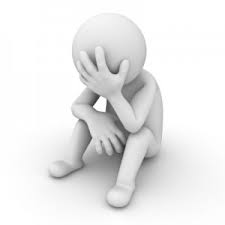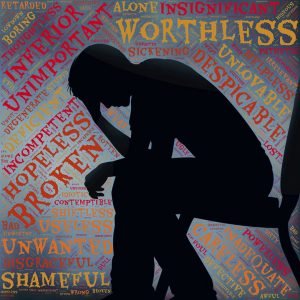THINGS TO KNOW ABOUT DEPRESSION
Depression is a common and serious medical illness that negatively affects how you feel, the way you think and how you act. Fortunately, it is also treatable. Depression causes feelings of sadness and/or a loss of interest in activities once enjoyed. It can lead to a variety of emotional and physical problems and can decrease a person’s ability to function at work and at home.

Depression is most likely caused by a combination of things, including genetic, biological, psychological and environmental factors. The death of a loved one, loss of a job or the ending of a relationship are difficult experiences for a person to endure. It is normal for feelings of sadness or grief to develop in response to such situations. Those experiencing loss often might describe themselves as being “depressed.”
SYMPTOMS OF DEPRESSION ARE:

Feeling sad or having a depressed mood
Loss of interest or pleasure in activities once enjoyed
Changes in appetite — weight loss or gain unrelated to dieting
Trouble sleeping or sleeping too much
Loss of energy or increased fatigue
Increase in purposeless physical activity (e.g., hand-wringing or pacing) or slowed movements and speech (actions observable by others)
Feeling worthless or guilty
Difficulty thinking, concentrating or making decisions
Thoughts of death or suicide
SOCIAL EFFECT OF DEPRESSION

In addition to the health effects of depression, patients experience social effects as well. The social effects of depression change how a person functions in the world and their relationship with others. Social effects of depression include:
Substance use and abuse
Social and family withdrawal
Decreased performance at work or school
How Is Depression Treated?
Medication: Brain chemistry may contribute to an individual’s depression and may factor into their treatment. For this reason, antidepressants might be prescribed to help modify one’s brain chemistry. These medications are not sedatives, “uppers” or tranquilizers. They are not habit-forming. Generally antidepressant medications have no stimulating effect on people not experiencing depression.
Psychiatrists usually recommend that patients continue to take medication for six or more months after symptoms have improved. Longer-term maintenance treatment may be suggested to decrease the risk of future episodes for certain people at high risk.

Self-help and Coping
There are a number of things people can do to help reduce the symptoms of depression. For many people, regular exercise helps create positive feeling and improve mood. Getting enough quality sleep on a regular basis, eating a healthy diet and avoiding alcohol (a depressant) can also help reduce symptoms of depression.